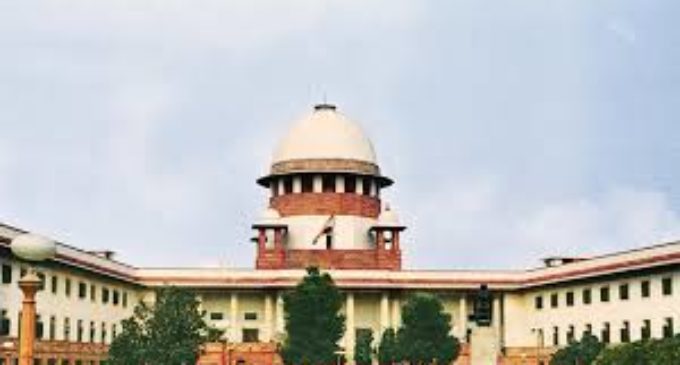SC upholds 10 per cent reservation for Economically Weaker Sections with 3:2 verdict

NEW DELHI,VON 7: The Supreme Court on Monday by 3:2 majority upheld the validity of the 103rd Constitutional Amendment that granted 10% reservation to Economically Weaker Sections in admission to central government and private educational institutions and recruitment in central government jobs.
The validity of the amendment has been upheld by Justices Dinesh Maheshwari, Bela Trivedi, and JB Pardiwala. CJI UU Lalit and Justice SR Bhat have however dissented.
“The 103rd cannot be said to breach the basic structure of the constitution. The 103rd cannot be said to breach the basic structure of the Constitution in exclusion of SEBC, OBC, SC/ST from the scope of EWS,” Justice Dinesh Maheshwari said.
Justice Bela M Trivedi while upholding the validity of the amendment said, “The Constitutional amendment cannot be said to be discriminatory. At the end of 75 years of Independence, we need to revisit the system of reservation in the larger interest of the society.”
Also ruling in favour, Justice JB Pardiwala said, “While upholding the validity of the amendment, I quote and observe that reservation is a means to secure economic justice and it should not be allowed to permit vested interests.” The judge also said that reservations cannot go on for an indefinite period.
Terming the amendment as discriminatory, Justice SR Bhat in his dissenting opinion said that leaving out the poor from SC/ST/OBCs from availing the reservation benefit under EWS is discriminatory. The judge further added that the amendment strikes at the heart of the equality code.
Agreeing with Justice Bhat’s view, CJI UU Lalit said, “I concur with the views of Justice Bhat.”
A five-judge bench of CJI UU Lalit, Justices Dinesh Maheshwari, SR Bhat, Bela M Trivedi and JB Pardiwala had reserved the verdict on September 27, 2022 after an extensive hearing of seven days on the issue of whether EWS quota violated the basic structure of the Constitution by permitting states to make a special reservation.
By the 103rd Amendment Act, Articles 15(6) and 16(6) were introduced in the Constitution, providing 10% reservation in jobs and admissions to EWS, who were to be persons other than SC, ST and OBC and whose annual family income was below ₹8 lakh.
The court will also decide on whether the amendment breaches the 50% ceiling on reservation fixed in the 1992 Indra Sawhney (also known as Mandal Commission) case in which SC ruled that reservation should not exceed 50%.
Challenging the 10% reservation, petitioners had said that EWS which was meant for backward classes was bad for excluding SC, ST & OBC from its purview.
The state of Tamil Nadu had also opposed the quota.
Defending the validity of the amendment, the central government had submitted before the bench that EWS reservations were meant to bridge the gap between the poorest of the poor and everyone else within the general category.
“EWS reservation was for the group of people consisting people from forward castes, non-Backward Classes, and general category,” former AG KK Venugopal said.
It was also contended that although an amendment may touch upon a basic structure, it cannot be struck down until it altered the basic structure of the Constitution and that amendment by providing economic justice strengthened the basic structure of the Constitution. The reservation was also supported by the states of Madhya Pradesh, Assam, and Andhra Pradesh.
-TNIE






